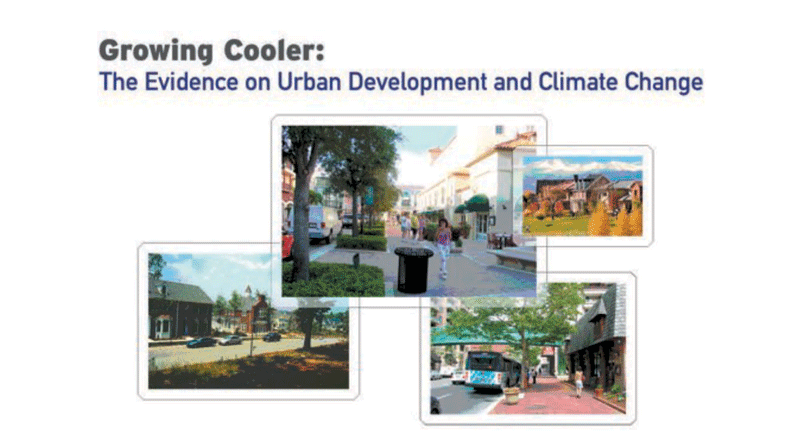Growing Cooler: The Evidence on Urban Development and Climate Change. (2008). Reid Ewing, Keith Bartholomew, Steve Winkelman, Jerry Walters and Don Chen with Barbara McCann and David Goldberg, The Urban Land Institute
The Urban Land Institute (ULI) has issued this report to address growth and developmental strategies designed to curb greenhouse gas (GHG) emissions. “Growing Cooler…” makes the case for reducing vehicle miles traveled (VMT) as an important and neglected component of GHG reduction. The high level of energy use (and resulting emissions) attributed to the massive growth in VMT alone makes smart growth and transit-oriented development policies increasingly important as part of an overall solution, together with vehicle efficiency and fuel content changes, to reduce GHG emissions. Both regional growth simulations and project-level simulations point to density, especially infill development, as a key component in plans to reduce VMT and CO2 emissions. The report contains useful policy recommendations for federal, state, and local governments. On the federal level, the authors advocate new Green-TEA legislation to bring about greater GHG accountability, fund existing infrastructure repairs, and orient transportation agency funding structures toward performance-oriented GHG reduction goals. States are asked to set goals for VMT reduction and meet these goals by reducing single-occupant commutes and by providing grant and technical assistance to local VMT reduction plans. Changes to development rules and approvals, such as smart growth tax incentives and ending the competitive “Fiscalization of Land Use,” are ways to address these goals on the local stage. These recommendations provide useful starting points for policy discussions at all levels.

